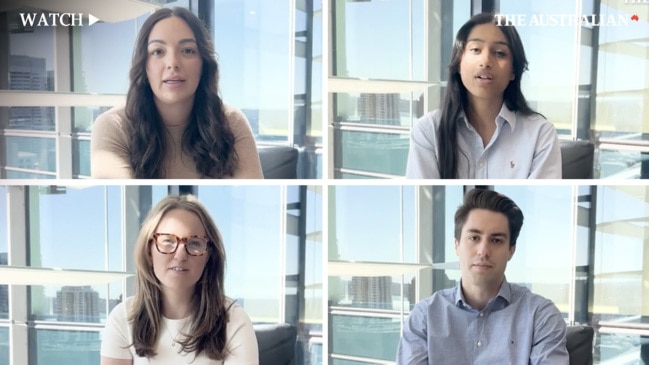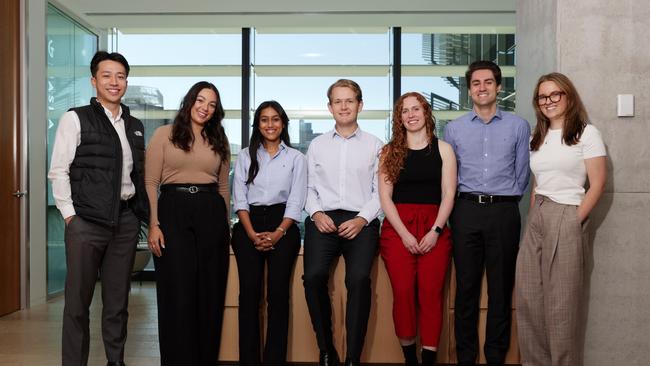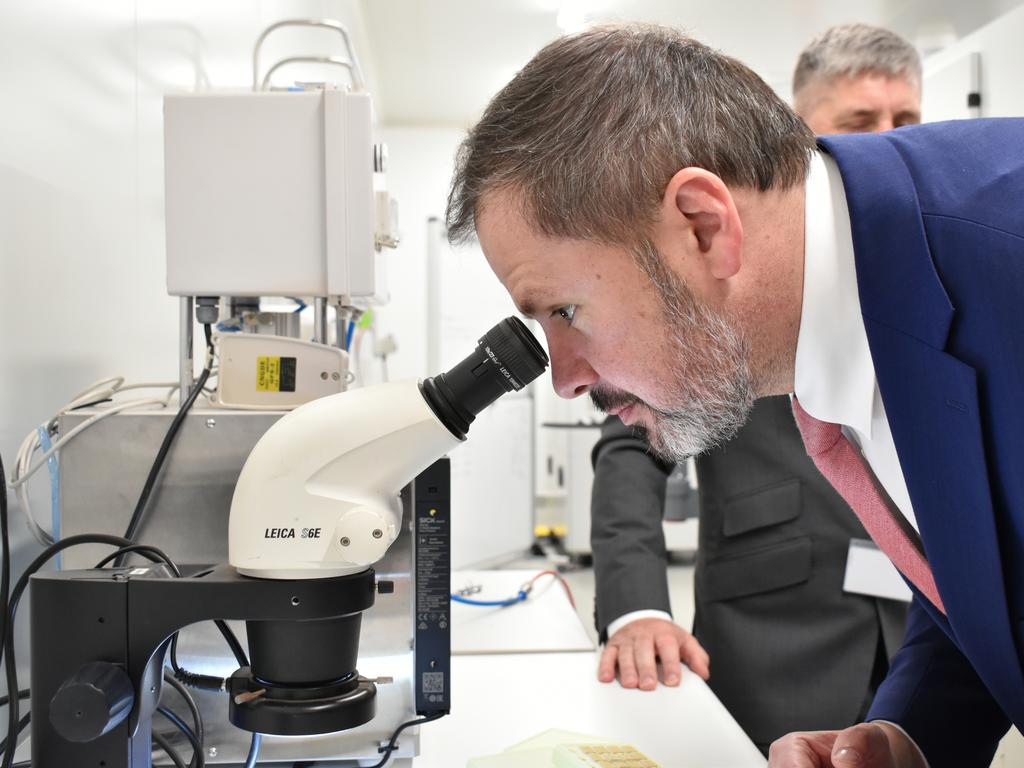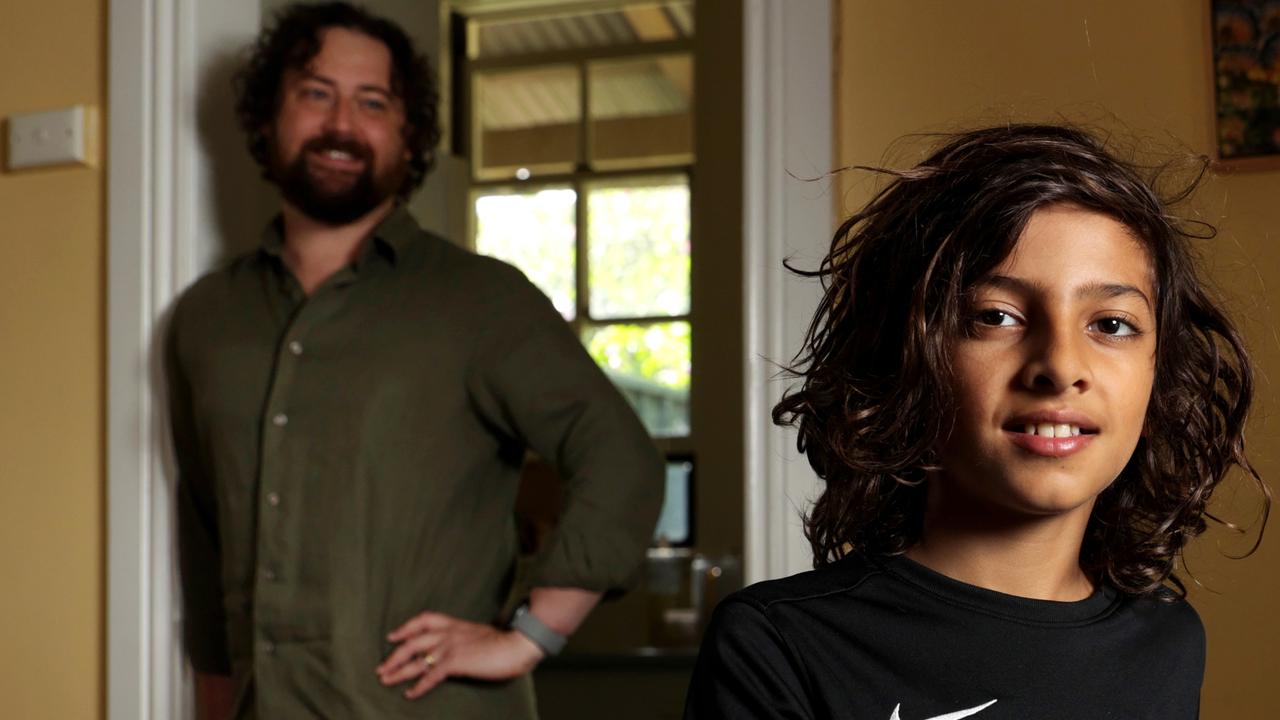Law graduates adamant AI ‘won’t take our jobs’
Graduates will drive law firms’ adoption of artificial intelligence, top legal minds say.

Graduates will drive law firms’ adoption of artificial intelligence, top legal minds say, with many firms planning to increase junior hires to support senior employees in adapting to the technology.
Firms that responded to The Australian’s Legal Partnerships Survey rejected any suggestion that AI could replace junior workers, but rather said these workers would be key to the technological transformation of the company.
Gilbert + Tobin graduate lawyer Talia Nardi said she was not worried about AI potentially replacing her, saying she instead sees it as a tool “to streamline a lot of things, and take a lot of the small admin tasks out”.
“Being a lawyer involves a lot more than sort of those things that AI can cover,” she said.
“Being a lawyer involves people skills, client management, project management, which are all things that AI doesn’t have the soft skills to be able to supplement or, you know, take our jobs.”
Gilbert + Tobin chief executive Sam Nickless said the firm was “investing significantly” in AI.
“At this stage we are not seeing any decline in demand for graduates or junior lawyers,” he said.
“We expect in the longer term there will be changes to the way certain legal services are delivered and therefore the nature of some graduate and junior roles. It’s too early to tell what that will mean for overall demand for these roles.”
The comments come as AI continues to infiltrate legal spaces, and firms buy their own legal chatbots to carry the load for overworked practitioners.
Both Ashurst and Gilbert + Tobin have run large, cash-incentivised competitions for staff to come up with ideas to integrate AI.
PwC and KPMG last year bought expensive chatbots that lawyers can use to ask questions about dense legal matters.
King & Wood Mallesons chief executive partner Renae Lattey said she was not expecting to hire fewer graduates or junior lawyers.
“Quite the opposite, they’re the ones who are going to help us older folk adapt and adjust,” she said. “Of course, we’re thinking a lot about how these changes impact the existing law business model. We’re taking a ‘curious but careful’ approach to AI – aiming to gather data as well as empower and engage our people to experiment responsibly.”
Ms Lattey said the firm was working to build graduates and junior lawyers’ “AI muscles” in order to improve “their skills in prompt generation and comfort working daily with AI”.
“That’s because we know that what they will work on and how they learn will change as AI becomes increasingly part of their workflows – for example, their research methods will certainly evolve, and they’ll likely get earlier exposure to more complex work synthesising the output,” she said.
“It’s an exciting time for them.”

Clayton Utz chief executive partner Emma Covacevich said her assessment of the AI landscape was tools that currently exist “augment the capabilities of lawyers but are not at the level where they could replace lawyers”.
“For example, AI can’t apply the law or devise legal strategies to meet clients’ specific challenges as well as humans can,” she said. “We don’t have any expectation about needing fewer graduates or junior lawyers because of AI.”
She said many lawyers in the firm were already using AI and “are excited about its future in law and like working in a firm that innovates with AI”.
“So, our staffing strategy is focused on equipping our graduates (and all our people) with the right AI tools and skills to use AI safely and effectively. We think AI will become a standard part of many aspects of legal practice and our young lawyers will develop skills in using it as the same time as all the other skills that they learn.”
Want this content (and more!) in your inbox? Sign up for The Australian’s legal affairs newsletter.






To join the conversation, please log in. Don't have an account? Register
Join the conversation, you are commenting as Logout